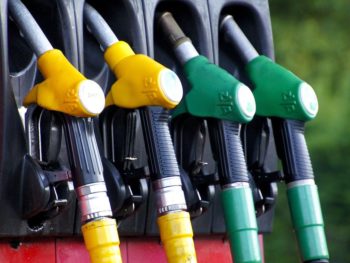A fuel duty tax cut is vital to remove the inflationary pressures on delivery costs and protect the nation’s supply chain.

So says industry trade body Logistics UK, which has called on Chancellor Nadhim Zahawi MP for an immediate introduction of a 6p per litre reduction in fuel duty to help prevent price rises in all sectors.
Kate Jennings, Logistics UK’s policy director, said the delivery of goods across the UK’s economy was being hard-hit by the rising fuel costs and the knock-on effect would be increased costs for consumers and businesses.
“77% of all UK supply chain journeys are by road while others always have a road element to provide first- or last-mile deliveries. With forecourt diesel prices increasing by 34% since the start of the year, the cost of delivering for UK Plc has risen significantly in that period. This ongoing inflation is placing an unsustainable burden on logistics businesses which operate on very narrow margins and so cannot absorb increased costs at this scale.”
She added: “The UK’s logistics operators are already paying duty at a rate which is 63.5% higher than the EU average, and with labour costs also rising, the current exceptional cost of fuel is putting unprecedented pressure on the businesses which the country relies upon to keep it supplied with the goods it requires.”
Jennings also noted that while the 5ppl cut to duty in the Spring Statement was much welcomed, it had already been absorbed in the ongoing increased running costs for business.
“A further 6p per litre duty reduction, implemented immediately, would be good for the cost of living, good for business and economic growth, and good for supply chains.”
One potential solution to the issue of rising prices could be the introduction of a dynamic system, similar to that used in Portugal, where the rate of duty is reduced weekly if there is an increase in VAT revenue on fuel sales.
Jennings continued: “An increase in the material cost of fuel will still enable the Treasury to achieve tax targets through VAT payments. However, by introducing a dynamic, price-related taxation mechanism, the Government can ensure that fuel duty doesn’t add to the inflationary pressures faced by consumers and business. “
Last week also saw the AA call for a revival of George Osborne’s Fuel Price Stabiliser – which lowers fuel duty when oil and commodity fuel prices surge and raises it when they slump.
Meanwhile, iCompario – a business comparison website from Radius Payment Solutions that includes fuel cards – has raised the question of whether fuel prices could hit the £2.50 mark.
Digital director Kerry Fawcett said: “Since the invasion of Ukraine, we have all felt the impact of unprecedented price rises at the pump. During these uncertain times, you cannot fully rule out diesel prices exceeding £2.50/litre.
“Any loss of Russian exports due to punitive sanctions will inevitably squeeze a fragile market in which global oil supplies are already failing to keep pace with surging post-pandemic demand.
“Heightened oil price volatility has become the norm, with intraday wholesale prices moving up to 5ppl as the market attempts to price in potential supply shortage in a very uncertain economic backdrop.”

